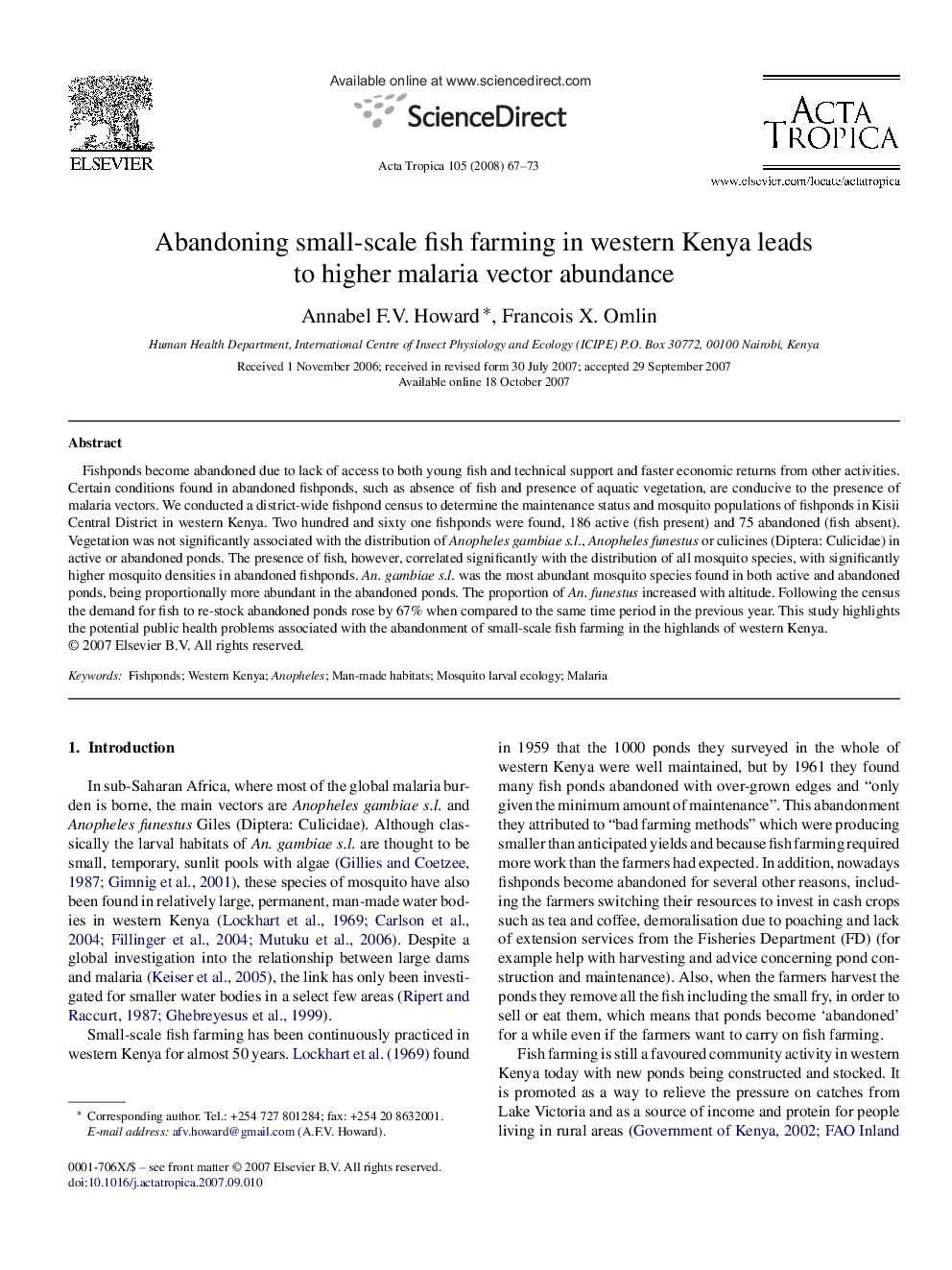| کد مقاله | کد نشریه | سال انتشار | مقاله انگلیسی | نسخه تمام متن |
|---|---|---|---|---|
| 3394676 | 1221482 | 2008 | 7 صفحه PDF | دانلود رایگان |

Fishponds become abandoned due to lack of access to both young fish and technical support and faster economic returns from other activities. Certain conditions found in abandoned fishponds, such as absence of fish and presence of aquatic vegetation, are conducive to the presence of malaria vectors. We conducted a district-wide fishpond census to determine the maintenance status and mosquito populations of fishponds in Kisii Central District in western Kenya. Two hundred and sixty one fishponds were found, 186 active (fish present) and 75 abandoned (fish absent). Vegetation was not significantly associated with the distribution of Anopheles gambiae s.l., Anopheles funestus or culicines (Diptera: Culicidae) in active or abandoned ponds. The presence of fish, however, correlated significantly with the distribution of all mosquito species, with significantly higher mosquito densities in abandoned fishponds. An. gambiae s.l. was the most abundant mosquito species found in both active and abandoned ponds, being proportionally more abundant in the abandoned ponds. The proportion of An. funestus increased with altitude. Following the census the demand for fish to re-stock abandoned ponds rose by 67% when compared to the same time period in the previous year. This study highlights the potential public health problems associated with the abandonment of small-scale fish farming in the highlands of western Kenya.
Journal: Acta Tropica - Volume 105, Issue 1, January 2008, Pages 67–73